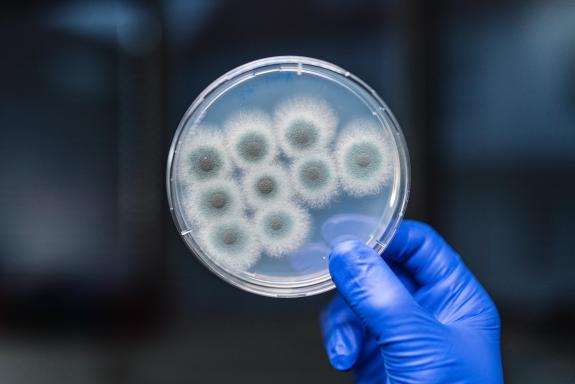We are constantly breathing in airborne spores of Aspergillus fumigatus - the pathogenic fungus that is the focus of our research. In healthy people, the immune system can fight the fungus. In the lungs of patients with a weakened immune system, however, it can survive in the immune cells. In a similar way, other pathogenic microorganisms can escape being killed by our immune system and cause disease.
The discovery of antibiotics was one of the biggest breakthroughs for the healthcare system and has saved countless lives. However, the constant use of antibiotics has led to the development of antibiotic-resistant pathogens in recent years.
As a result, there is currently a great need for new antibiotics and therapeutic strategies to combat these pathogens. Antibiotics are small chemical molecules that can specifically kill microorganisms. In nature, for example, they are produced by bacteria and fungi as a weapon against competing organisms. They are part of the language that microorganisms use to communicate with each other in nature. Our investigations into the communication of microorganisms can lead to the identification of new active substances that can be used to treat infectious diseases.

